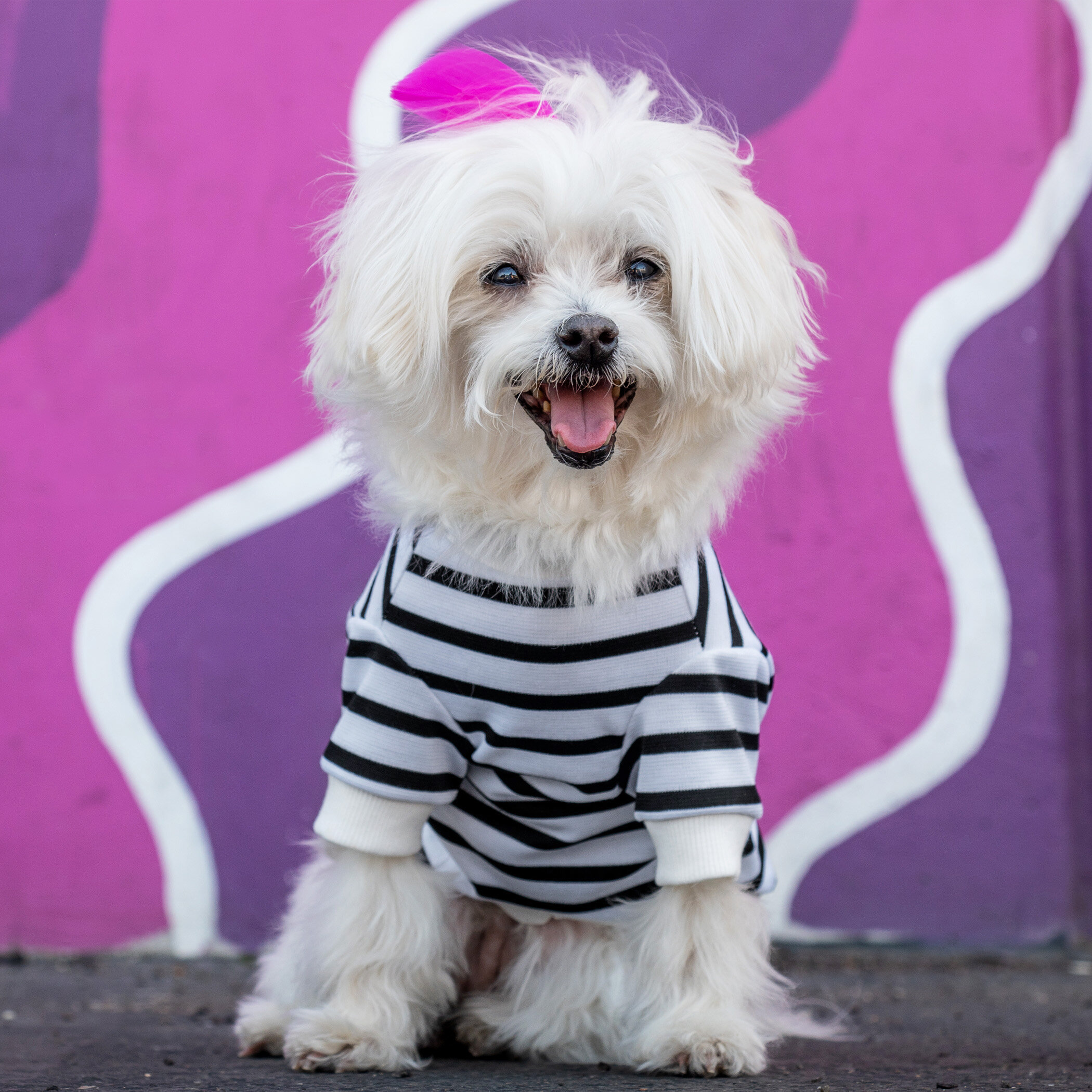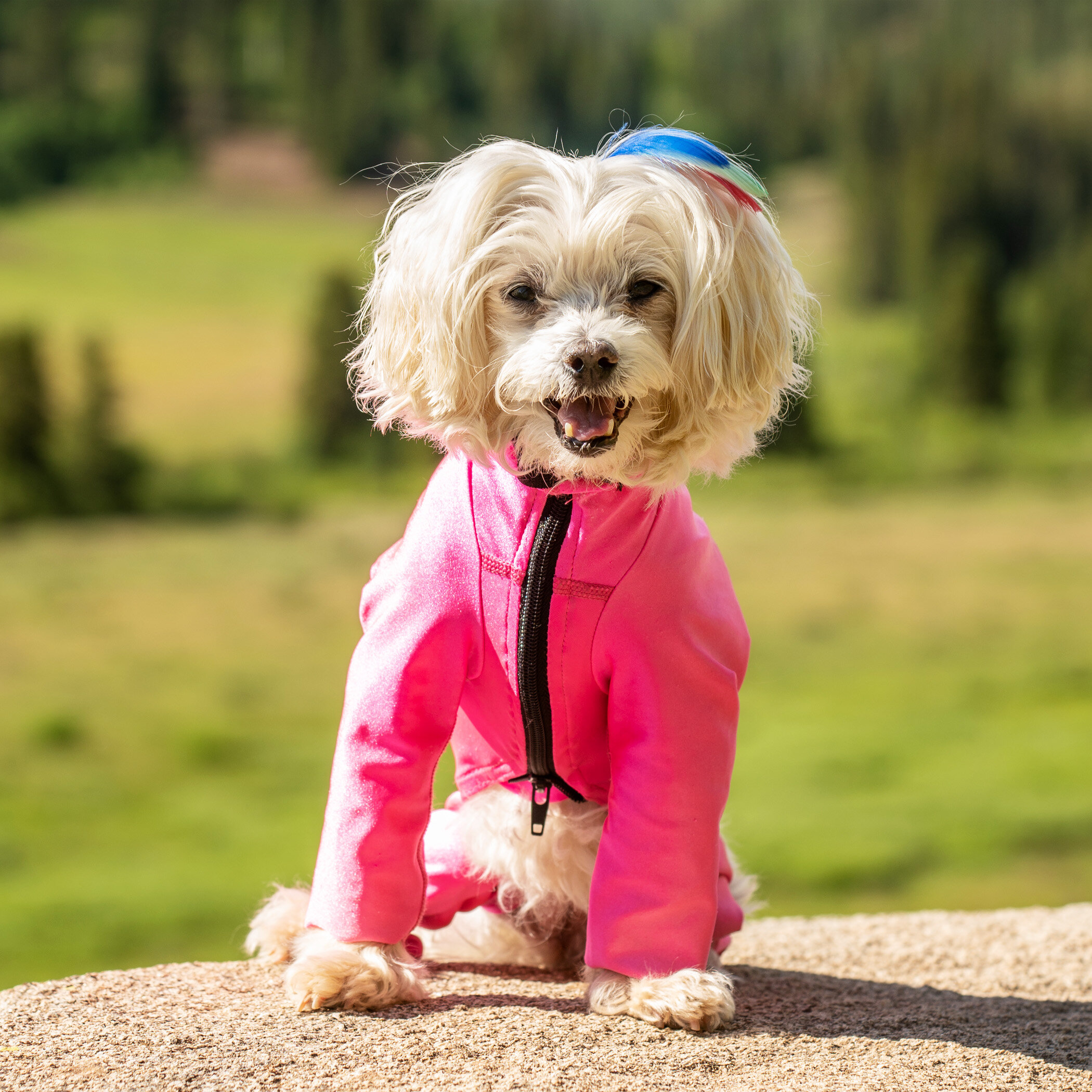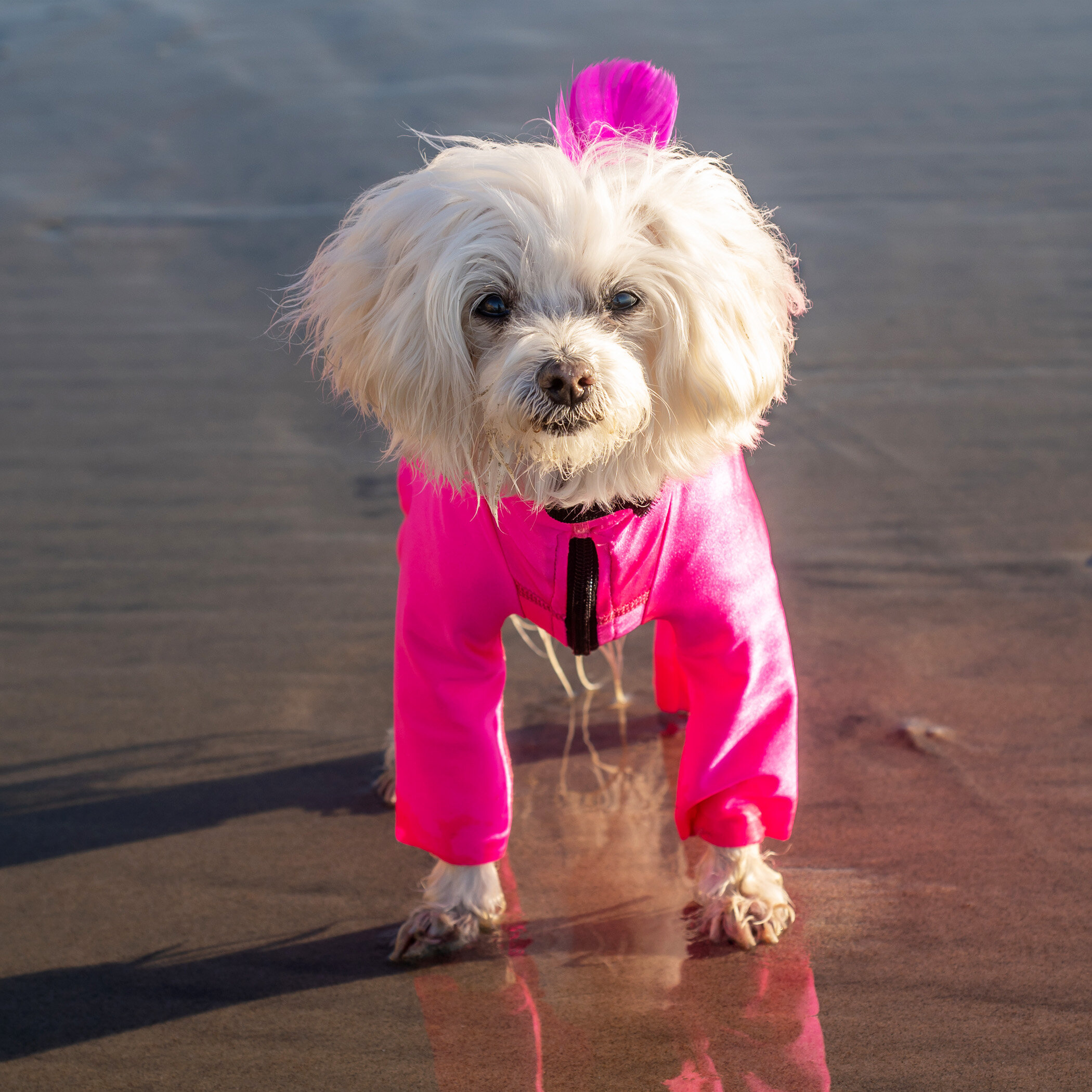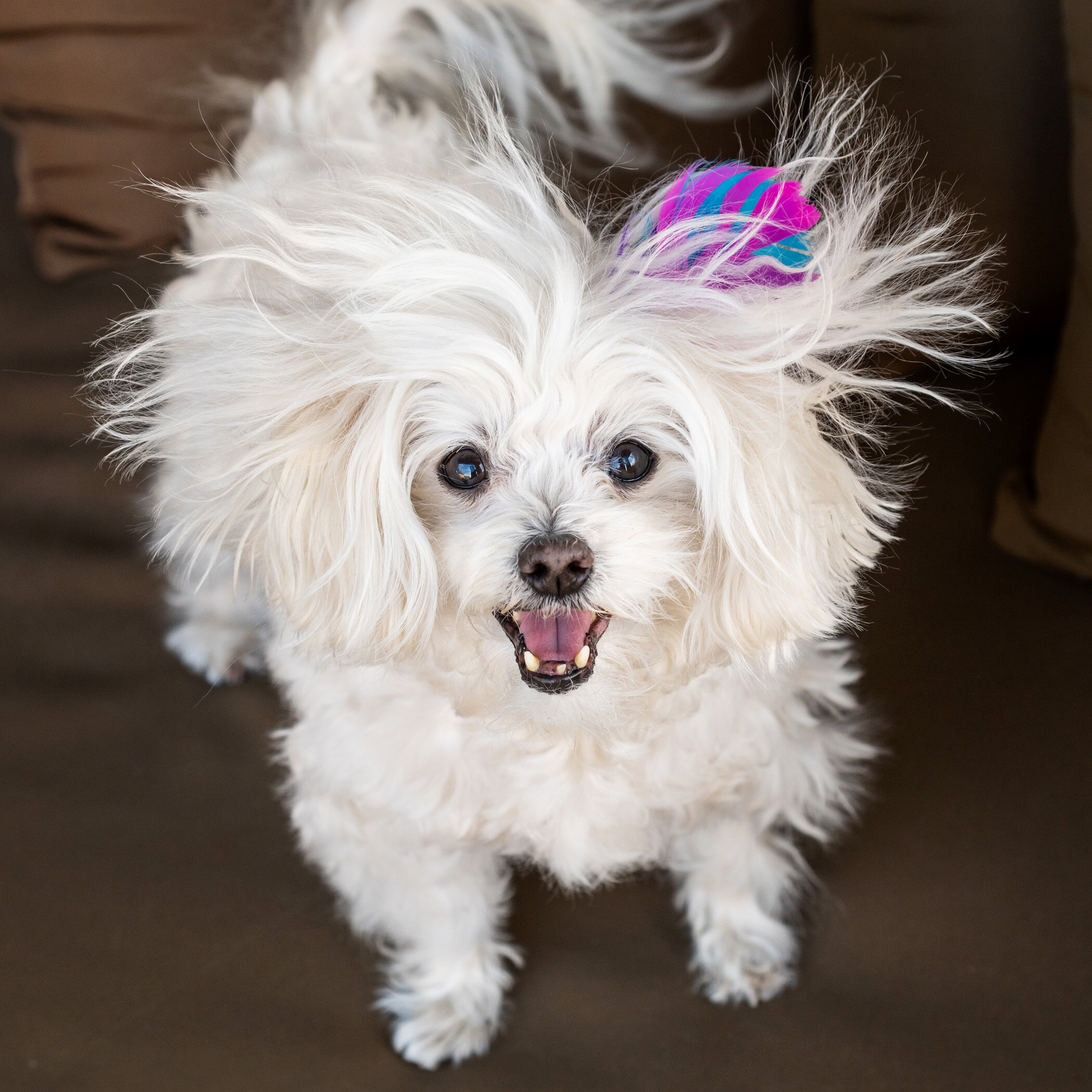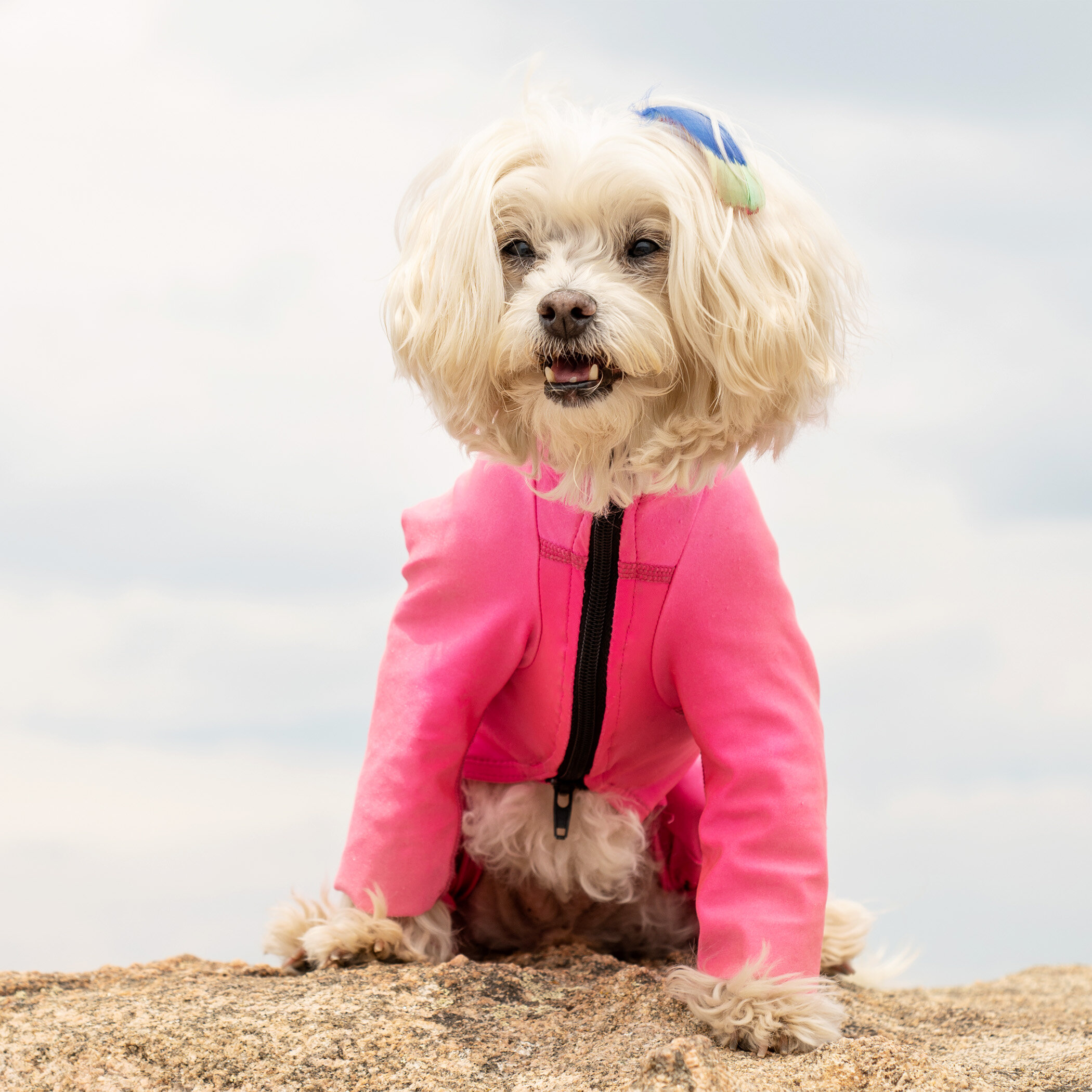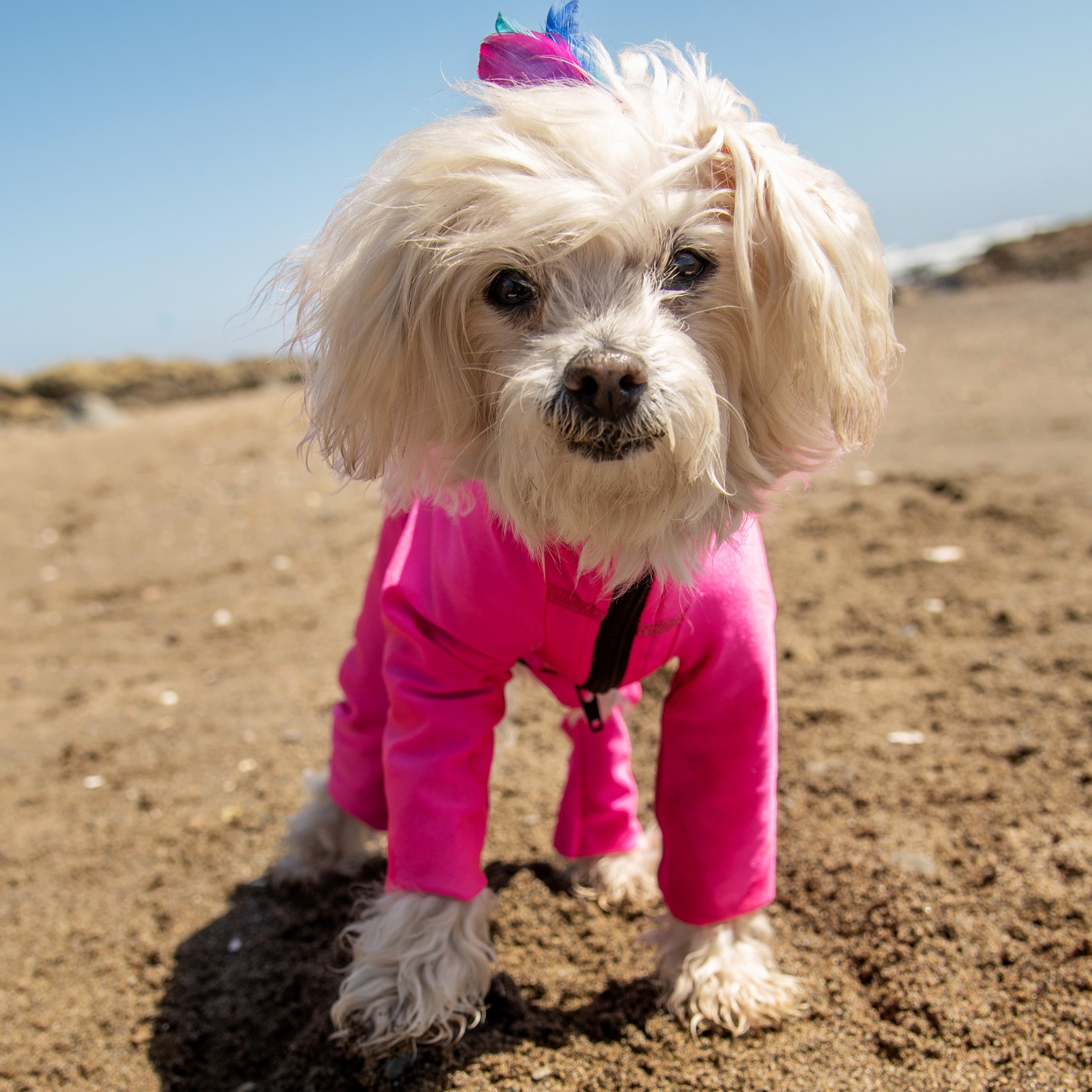#DoggieDementia
Did you know that dogs can get dementia, just like humans? I didn’t. I just thought the changes we were seeing in Pebbles were simply due to old age.
As time went on, through multiple discussions with our vet, and extensive online research, I learned that there is such a thing as doggie dementia…also called Canine Cognitive Dysfunction. Starting in the Summer of 2021, we realized Pebbles had been slowly headed down this path.
Learning what some of the common signs are, and what typical symptoms are, I realized that many of the behavior and personality changes I had seen in her over the previous year could be attributed to this mental decline, which is a result of physical brain changes.
Like Alzheimer’s, the memory starts to go. Basic obedience is forgotten. Interactions with people and other pets can change. They can get easily disoriented or confused. And, just like Alzheimer’s, pets can experience “sundowning”…where the disorientation gets worse in the afternoon/evening hours.
Possible signs of Canine Cognitive Dysfunction have been classified with the acronym DISHAA. The letters stand for:
- Disorientation (appearing lost or confused, pacing back and forth or circling in one direction, staring off into space or at walls, walking into corners or other tight spaces and staying there, getting trapped under or behind furniture)
- Interactions (seeking attention less often, seeming withdrawn, avoiding known people, losing enthusiasm for play)
- Sleep (sleeping more during the day and less at night, wandering/pacing/howling/crying at night)
- House Soiling (forgetting housetraining, or how to ask to go outside)
- Activity (being more sedentary, repeating behaviors over and over, barking for no clear reason, being quiet when barking would usually occur)
- Anxiety (generally more fearful or anxious, separation anxiety, scared of things that used to be fine)
In addition, there can also be changes in:
- Memory and Learning (forgetting cues and trained behaviors, having difficulties learning anything new, failing to remember routines, or starting them and getting only part way through, not responding to their name)
- Appetite (an increase or loss of appetite, becoming a picky eater, experiencing trouble eating)
The exact cause of Canine Cognitive Dysfunction is not known, but definitely has to do with a decrease of neurons, inefficiency of the remaining neurons and toxic free radicals in the brain…creating a “sluggish” brain.
Some of the changes in Pebbles that we have noticed, that lead us to a diagnosis of dementia include:
- A huge increase in whining/crying, especially at meal time or in the car
- Urinating on the tile floor, or in the middle of doing a mental stimulation activity with her
- Changes in her willingness to eat. She used to love food, and would gobble it up in seconds. Her behavior at mealtime became unpredictable. Sometimes, she would eat everything put in front of her. Other times, she would pick out certain bites. And, even other times, she would just walk away from her bowl.
- Standing in one spot and staring into space, with a vacant look on her face
- Getting “trapped” by furniture, doors or beds that she could just walk around
- No interest in playing with toys anymore, even her favorite Lil Pals
- Less eye contact and more just constantly looking around every which way
- Inability to perform tricks she’s known for years, and forgetting many of her obedience commands and behaviors
- Standing at the hinge side of the door, instead of the side that opens
We haven’t yet reached the point where her days can be categorized as good or bad. It’s more about good moments and bad moments.
For example, one morning, she might greet me as I step out the bedroom, with her tail wagging. She will follow me around, and then lay down comfortably to rest.
The next morning, she may not greet me at all. Then, when she hears the coffee grinder, she’ll stand up and not move. Just stand in one position, until I go to greet her and love on her. After I walk away, she still keeps standing there. Not following me, not going to find a comfortable spot to lay down, but just standing with a completely vacant look on her face.
Every day, from about 4-7 PM she is in a pretty consistent state of worry, pacing, and confusion. Unfortunately, it doesn’t go away until Pete and I have sat down to eat our dinner. At that point, her body is so exhausted, she succumbs to sleep. (This is definitely sundowners…something that humans experience, as well. There is research to show that added melatonin can help them settle into a nice sleep. We have seen that to be the case, and try to give her a dose in the late afternoon.)
Just like the cause is unknown, so is the treatment. There is no cure. There are some supplements, a couple of medications, enrichment activities to boost brain function, and a healthy diet that have shown to have some benefits and possibly slow down the progression. But, the decline is inevitable.
The things that we tried in an attempt to slow the progression include:
- NHV Natural - Natures Immuno, Old Timer and Turmeric (For more info: Dementia Blog Post about Pebbles)
- High doses of CBD Oil
- Double doses of Nutrolin Senior Omega Oil, which include Vitamin E and Ubiquinone (Q10)
- MCT Oil (medium-chain triglycerides)
- A huge increase in B Vitamins (Dr Dobias Soulfood)
- Liver support (Dr Dobias LiverTune & NHV Milk Thistle)
- Melatonin can help with sundowning symptoms
- We have also created an Amazon Health list of items that we have tried
- Mental stimulation activities
- Keeping her active throughout the day, so that, by evening, she is tired and will sleep
Is anything actually working? It’s hard to say. If we weren’t doing all these things, would she be having good days and bad days, instead of good moments and bad moments? Maybe, maybe not. Dementia is so different from a physical disease. It can’t be measured by size, by grade, by a blood test, by examination…it’s judged by observation and gut feeling.
If I had to choose the supplements that I think have made the biggest difference, I would choose NHV Natural - Natures Immuno, Old Timer and Turmeric and Melatonin. But, many of the other supplements she has been on even before we began to see symptoms, so it’s possible that they’ve been helping from the beginning.
As time with her has progressed, I believe that the early stages of dementia were actually worse than the later stages. Maybe it’s because she had some awareness that things weren’t as they had been, which caused her to be anxious and unsettled.
Now, that she’s progressed into a further state, she is less aware of her past, and more just relying on her natural dog instincts to live life. The small things and everyday changes don’t upset her or make her anxious.
She is Pebbles…but yet, she’s not Pebbles. She’s not our spunky, high energy, love getting attention from everyone, take no prisoners Pebbles. When she’s not anxious, she’s quite calm and mellow, so unlike the Pebbles we’re used to. She doesn’t want to cuddle, but she’s happy to lick your hand, arm or foot. The one thing that has remained the same is her love for hikes! The hiking trail is without a doubt her happy place! It’s the only time we might catch a glimpse of her old self. It’s the place where she no longer looks like an old, confused dog, but looks instead like a confident teenager!
I have read that this disease is harder on us, then it is on them. We know what their behavior and personality used to be like, so we see the changes. In a way, it’s a blessing, that they forget. They don’t know that things have changed. They don’t realize that they’re not responding to their name, or have forgotten how to Shake, or how to play with toys. Or, that they have a bunch of new quirks that they’ve never had before!
So, while at times it breaks my heart to look down and not see my sassy, spunky Pebbles, I am blessed to still be able to look down and see her! I am blessed to know that she still finds comfort in being with us. I am blessed to see her come alive on the hiking trail! And, I am blessed to have been a pupil to all her teachings!
Her quality of life, and her happiness, is what is of highest importance to us…and we will do everything we can to meet those needs. When the day comes that we can’t, we will make the strong, right decision for her.
If you want to learn more about Canine Cognitive Dysfunction, here is a good place to start – www.dogdementia.com
Or, if I can be of assistance, please don’t hesitate to reach out! This is new for us, but we’re doing our best to navigate the road in front of us!



